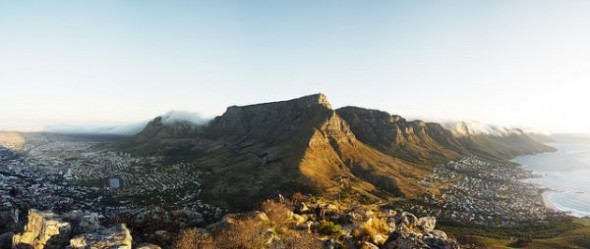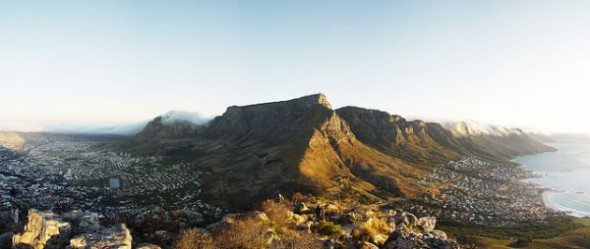
Cape Town is the greenest city in Africa
By 2035, half of Africa’s population will be living in urban areas. Megacities that will sprout to house this population will strain infrastructure and exert pressure on the environment. Cape Town, Africa’s greenest city, is planning for that future. The Mother City, as it is known in South Africa, is the greenest city on the […]

By 2035, half of Africa’s population will be living in urban areas. Megacities that will sprout to house this population will strain infrastructure and exert pressure on the environment. Cape Town, Africa’s greenest city, is planning for that future.

The Mother City, as it is known in South Africa, is the greenest city on the continent but it still produces more waste per person, its citizens consume more power and it lacks population density. Tackling these issues is the groundwork upon which the city government is building a more sustainable city of the future.
Rashiq Fataar, managing director of Future Cape Town, wants to see the city evolve into one that is more people-friendly. He believes that the city environment, as it grows to accommodate an expanding population, needs to be better planned, with better housing – more green housing especially – and an improved public transport system and improved, safer access to other modes of transport.
Fataar believes that the city – the country, in fact – has the skills and talent to design compact cities that work for all its citizens. “Cape Town needs to better exploit the amazing talent and potential that exists in our city. A people-friendly, sustainable city requires a mesh of ideas, strategies, individuals and organisations to work towards one goal.”
Cape Town’s topography allows the city to introduce new green spaces and its population has driven the rise of farmers’ markets and spurred a growth in locally sourced food. Businesses like Alan Fleming’s Fish Farm is reducing the carbon footprint of the aquaculture industry while supplying a cheaper protein source for the city’s population.
Public transport
It has also built up its public transport and is introducing more bicycle lanes around the peninsula. Access to public transport has helped to lower the city’s rating in these categories to below that of Cairo, a metropolis that has won praise for its public transport system.
While Cape Town scored well in most categories, it scored below average on CO₂ emissions. It also generates the second highest amount of waste per capita of all the cities studied. It is a concern Cape Town is tackling. Beyond encouraging more energy conservation the city has, since 2008, been using energy from the Darling Wind Farm, South Africa’s first commercial wind farm. By 2020, the city hopes that as much as 10% of its energy needs will be drawn from renewable energy sources.
The Siemens Green City Index, a research study conducted in partnership with the Economist Intelligence Unit, measures different categories – energy and CO₂, land use, transport, waste, water, sanitation, air quality and environmental governance – and highlights the green initiatives of each city.
The results are meant to be used by city governments and other stakeholders to gain an understanding of the environmental pressures and challenges they face. Each city is studied in depth, giving readers of the report an idea of innovations and programmes that have worked and could be transplanted to their own regions.
As South Africa’s cities grow through migration, city governments are faced with the problems of managing growth without stifling the opportunities for which people are searching. While dealing with ageing infrastructure today, they will also have to plan as well for a future of reliable supply of water, electricity and improved services of sanitation and waste management.
Keeping in mind the challenges in dealing with ageing infrastructure, UN Habitat warns: “Not a single African government can afford to ignore the ongoing rapid urban transition. Cities must become priority areas for public policies.”
By: Sulaiman Philip
Source: www.mediaclubsouthafrica.com
